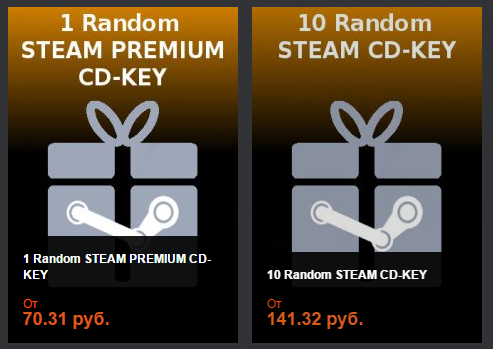Why is there a "gray" market for computer games?

Anyone who was interested in gaming or near-game content on the network, whether it’s video on youtube, gaming posts on social networks, or just streaming on Twitch, has come across advertising sites like G2A.com, gabe-game-easy-and-other-storyboards.
This advertisement, along with the advertising of various betting services and not the cleanest skin-roulettes, is so numerous that part of the audience has already ceased to pay attention to it, because who will be led to the text “Buy your favorite game twice cheaper!”, When this is possible only in discount period?
')
How do such sites exist for so many years and what do they do?
Now, in the era of broadband Internet and distribution of electronic copies, the main product was not discs with games, but electronic keys to them. What sells the infamous Steam, led by the
So why not try to copy a successful business model?
Many honestly tried, but could not repeat the success of Steam. The same Origin from EA is a commonplace appendix, the use of which is imposed: by purchasing the games of the company on Steam you get to the load and this craft, which does not always work correctly. The notorious battle.net from Blizzard went along the same path, but in order to justify the “blizzard” it can be noted that they were always famous for a very closed ecosystem.
So, we have a “winner”: he sells keys that are activated even by his competitors in the workshop. What's next?
That's right, there were cunning businessmen who realized that you can trade keys not bypassing Steam, but for Steam.
Epoch baryg
Any direct participant in these events could tell more about this, but I will try as well.
Once, when the grass was greener and no one really saw regional restrictions, there were people who were tired of buying games in one region and selling gifts with these games in another. In fact, it was a direct game on the courses + bargaining "buy cheaper - sell more expensive."
The shop covered itself as soon as Steam became tightly in control of the regions. Because, for example, in the Russian Federation at the rate of the game cost is 1.5-2 times cheaper than in the EU or the rest of the CIS region (yes, games for $ 60 for all others are a cruel reality).
So where are the keys from?
I did not just cite the above link to the publication, which tells about the rates for eSports and explains the value of in-game property on the example of CS: GO. With proper patience, luck and endurance for several months of active play at the stakes, you can turn $ 5-10 into $ 500-1000 (this is not advertising, but personal experience, do not take risks). And, at a certain point, I want to cash this money.
There are no legal ways to withdraw funds from your Steam wallet back to cash. This is clearly spelled out in the EULA Steam. You can try to convert a lot of items through the trade into something really expensive, for example, a rare knife, which costs from a few hundred dollars, but this leads to significant financial losses. Plus, you need to find a buyer for this knife and no one is insured against fraudsters.
On the other hand, a number of services offer the path of least resistance: sell your stuff on the Steam marketplace, buy games for the money you received, and give us the keys / keys, we’ll even give you a list of what we need. And we will give you a coin, a real, live coin, an e-wallet, or even a credit card.
The main trick is that on one of these sites (I will not bring the link, so that they do not think that advertising, but it can be found on the first page of Google) the fee for “cashing in” is 32% .
This is the main reason why in the stores selling the keys to the games the prices are lower than on Steam.
Another source of income
For many months I have been thinking that the opportunity to buy a game is 15-50% cheaper than on Steam, this is not the main source of income for the owners of such sites. Because it is advertised, basically, the service, in fact, a side. The so-called% shopname% rand.
And here again the dirty tricks and the manipulation of public opinion come to the fore. By the way, even international giants of the G2A sector do not shun “randomness”.

What is the point? A user buys a “random key” for a small amount, in the hope that he will drop something from the list announced by the administration. Most often, the owners of such resources mention the most popular and expensive titles such as GTA V, CS: GO, The Witcher, Battlefield, and so on. In fact, these randomies consist of 90% of indie garbage and titles worth less than $ 1 in bulk purchased for, for example, sales.
And it can actually be profitable. On some sites, “randomies” are also divided by the cost of games and you can get something decent from the top list only by “throwing” at least 300-600 RUB onto the roulette wheel. True, the question is whether it is possible to actually “get” what is being said from there remains open.
Why is Valve not struggling with this?
In order to do something, it needs reasons. Since the keys to the games are purchased in the Steam itself, and do not appear out of nowhere, the company has no reason to fight with such sites. Plus, they have their margin on these operations in the form of a commission on the sale of things on the trading floor at a rate of 12%.
Source: https://habr.com/ru/post/396045/
All Articles